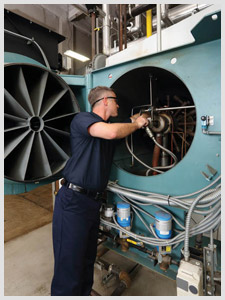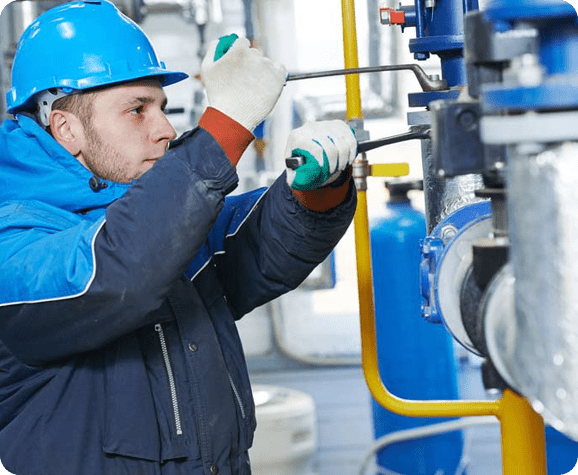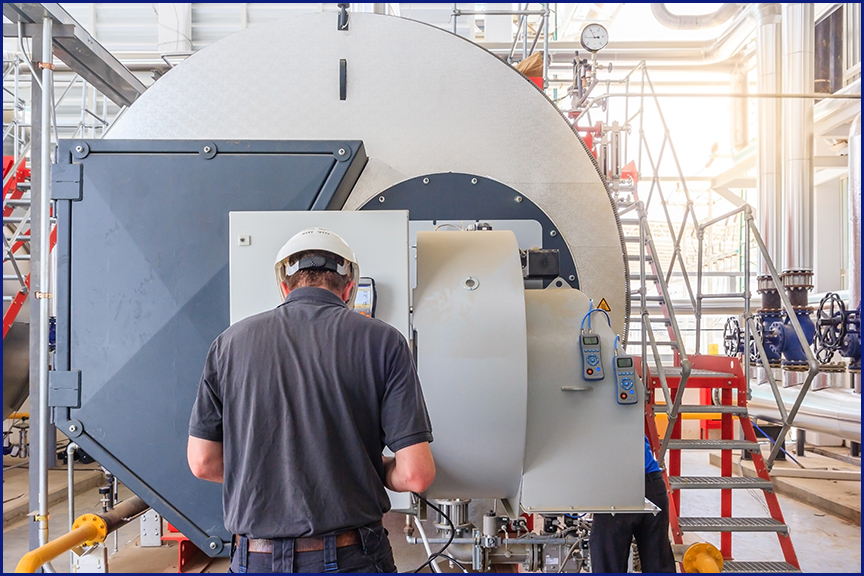Boiler Training Explained: What Every Operator Must Know
Discover the Important Abilities and Expertise Got From Boiler Training
When you join central heating boiler training, you acquire essential skills that straight influence your performance in the field. You'll discover various boiler kinds, discover how to run them successfully, and understand the significance of security methods. However there's more to it than just operation; you'll likewise find just how to fix common concerns and assurance regulatory conformity. Each element plays an essential function in your expert advancement, causing considerable payments in the industry. What various other understandings await you?
Understanding Central Heating Boiler Types and Components
Boilers are crucial elements in numerous heater, and recognizing their types and parts is important for efficient operation and upkeep. You'll encounter numerous central heating boiler types, including fire-tube, water-tube, and electrical central heating boilers. Each type runs in different ways, affecting performance and application. Fire-tube central heating boilers, for example, are known for their simpleness and dependability, while water-tube central heating boilers are chosen for high-pressure applications due to their durable style.
Acquainting yourself with vital parts like burners, warm exchangers, and controls is essential. The heater fires up the fuel, while the warm exchanger transfers warmth to the water. Controls regulate temperature and pressure, assuring safe operation.
Recognizing how these elements function with each other assists you fix concerns and enhance performance. As you dive deeper into central heating boiler training, you'll gain the self-confidence to identify the ideal central heating boiler for specific requirements and confirm it operates efficiently, ultimately bring about more secure and a lot more reliable home heating solutions.
Mastering Boiler Procedure and Control
Comprehending the types and elements of central heating boilers sets the phase for understanding their procedure and control. When you realize the fundamentals, you can immerse yourself in the complexities of handling boiler systems successfully.
You'll likewise get hands-on experience with various control devices, such as analog and digital systems. Grasping these will certainly allow you to respond swiftly to any type of changes or issues that arise throughout procedure.
Additionally, familiarity with the control board and its signs will certainly enhance your confidence in troubleshooting small issues prior to they rise. Establishing these skills not just improves your functional expertise yet likewise prepares you for effective decision-making in real-world circumstances. Ultimately, understanding central heating boiler procedure and control is crucial to guaranteeing a smooth, effective process.
Making Certain Safety And Security and Conformity Standards
While grasping boiler procedure is essential, ensuring safety and security and compliance with sector requirements is just as crucial. You'll need to familiarize on your own with regional policies and best methods to mitigate dangers. Understanding the safety and security includes built into central heating boilers, such as pressure alleviation shutoffs and emergency situation shut-off systems, is important.
Throughout your training, you'll learn just how to perform regular examinations and maintenance to keep your equipment in top shape. You'll additionally gain understanding concerning proper paperwork, which aids demonstrate compliance during assessments.
Moreover, acknowledging possible hazards and recognizing exactly how to reply to them can conserve lives and protect against costly mishaps.
Troubleshooting Typical Boiler Problems
When central heating boiler problems arise, identifying the signs and symptoms is your initial step toward a reliable solution. You'll find out to determine typical troubles and apply the ideal repair techniques to get things back on track. Boiler Training. Allow's explore how to fix these concerns efficiently
Identifying Boiler Signs

Reliable Repair Strategies

Executing Regular Maintenance and Inspections
Carrying out regular upkeep and assessments is necessary for keeping your boiler running effectively and securely. You'll wish to understand the relevance of regular checks, crucial procedures, and needed safety methods. By staying positive, you can protect against major problems and guarantee a secure workplace.
Importance of Routine Assessments
While routine assessments may appear like a trouble, they're vital for maintaining the efficiency and safety of your central heating boiler system. Routine checks aid ensure that all components are functioning correctly, which not just prolongs the life of your central heating boiler but additionally maximizes its performance. Bear in mind, a positive strategy to evaluations can avoid unanticipated failures and keep your central heating boiler running efficiently for years to come.
Secret Maintenance Treatments
Routine inspections established the foundation for reliable maintenance, yet it doesn't stop there. You need to execute routine maintenance jobs to maintain your boiler running smoothly. Begin by examining the water levels and verifying they're within the advised variety. Inspect the pressure scale and look for any type of abnormalities. Tidy filters regularly to stop blockages that can prevent performance. Don't neglect to lubricate moving parts, as this minimizes damage. Furthermore, examine the combustion chamber for soot accumulation, which can affect performance. By staying positive with these treatments, you not just expand the life-span of your boiler yet also guarantee peak performance. Remember, consistent upkeep leads to fewer malfunctions go right here and a more secure working environment.
Safety Methods and Practices
Ensuring security during regular maintenance and inspections is necessary for both you and the central heating boiler's general performance. Acquaint yourself with the central heating boiler's guidebook, as it outlines certain safety actions tailored to your system.
Frequently inspect for leaks, and inspect valves and installations for wear. Maintain clear accessibility to emergency situation shut-off switches and assure appropriate air flow in the area. Record your searchings for and any type of upkeep carried out to track the central heating boiler's condition over time. By sticking to these procedures, you'll aid avoid crashes and assurance efficient procedure of the boiler.
Implementing Power Effectiveness Practices
Implementing energy efficiency techniques is important for enhancing central heating boiler efficiency and lowering functional costs. Begin by on a regular basis evaluating and keeping your central heating boiler to assure it operates at peak efficiency. Look for any leaks, deterioration, or wear that might impede performance.
Next, consider updating to innovative control systems that automatically readjust gas and air supply based upon demand. This not only saves energy however likewise enhances responsiveness to load variants.
You must likewise train your staff to keep an eye on energy use and recognize areas for enhancement. Motivate them to adopt techniques like shielding pipelines and utilizing economizers to recover waste heat.
Ultimately, examine your gas choices. Switching to more reliable or sustainable fuels can considerably reduce emissions and prices. By accepting these energy performance practices, you'll not just improve your boiler's longevity however additionally add to have a peek here a much more sustainable procedure.
Navigating Sector Rules and Certifications
With power efficiency techniques in location, your following focus needs to be on guiding with sector regulations and certifications that control boiler procedures. Understanding these needs is crucial for compliance and functional success. Boiler Training. Start by acquainting yourself with local, state, and federal guidelines, as they can vary significantly
You'll require to stay upgraded on standards established by companies such as the American Society of Mechanical Designers (ASME) and the National Board of Boiler and Stress Vessel Examiners. Qualifications like the National Institute for Accreditation in Engineering Technologies (NICET) can raise your professional standing.

Often Asked Concerns
What Profession Opportunities Are Offered After Finishing Boiler Training?
After finishing central heating boiler training, you can go after careers as a central heating boiler technician, maintenance designer, or plant driver. These roles supply opportunities for development in various markets, ensuring you remain engaged and tested in your profession.
For How Long Does Central Heating Boiler Training Typically Require To Full?
Central heating boiler training normally takes anywhere from a few weeks to a number of months, depending upon the program. You'll get hands-on experience and academic knowledge, preparing you for numerous task chances in the industry.
Exist Any Prerequisites for Enrolling in Central Heating Boiler Training Programs?
Yes, there are requirements for registering in central heating boiler training programs. You usually need a secondary school diploma or equivalent, in addition to basic mathematics and reading skills. Some programs might need prior experience or qualifications as well.
Can I Go After Boiler Training Online or Is It Just In-Person?
You can seek central heating boiler training online, yet lots of programs additionally provide in-person options. Online training gives flexibility, while in-person classes may give you hands-on experience. Select the format that ideal fits your learning design and routine.
What Certifications Can I Make Via Boiler Training Courses?
With central heating boiler training programs, you can gain certifications like the National Board of Central Heating Boiler and Pressure Vessel Assessors certification, state-specific licenses, and OSHA security accreditations. These qualifications enhance your credentials and job opportunities in the market.